On July 26, 2024, the Multisectoral Technical Working Group on Antimicrobial Resistance (AMR) under the One Health Partnership for Zoonotic Disease Prevention held its annual rotating co-chaired meeting. This time, the meeting was co-chaired by Dr. Nguyen Thu Thuy, Deputy Director General, Department of Animal Health (the lead agency on AMR in agriculture) under the Ministry of Agriculture and Rural Development, and Professor Robyn Alder from the Global Health Security at Chatham House, United Kingdom.
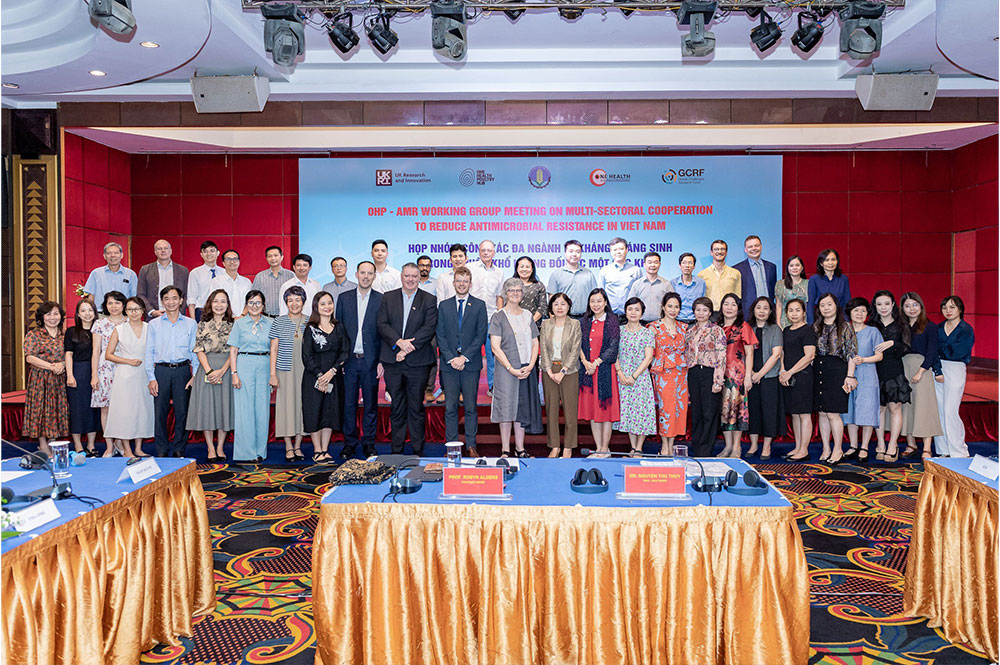
The meeting was attended by representatives from the three co-chairing ministries (Ministry of Health, Ministry of Natural Resources and Environment, and Ministry of Agriculture and Rural Development), embassies, bilateral and multilateral organizations, academic institutions, associations, and several provinces participating online.
Dr. Nguyen Thu Thuy, Deputy Director General, Department of Animal Health, stated that antimicrobial resistance is a particularly important issue, as outlined in Task 3 of the Multisectoral Partnership Framework for One Health for the period 2021-2025: “strengthening the management and surveillance of antimicrobial use and preventing antimicrobial resistance.” The multisectoral AMR working group is one of the effective mechanisms for implementing laws and national action plans on preventing antimicrobial resistance in healthcare, the environment, and agriculture. Most recently, the goals and tasks for managing, monitoring, and controlling AMR are clearly defined in the “National Strategy on the Prevention of Antimicrobial Resistance for the period 2023-2030, with a vision to 2045,” approved by the Prime Minister’s Decision No. 1121/QĐ-TTg. This strategy applies a “One Health” approach aiming to fundamentally control the situation of antimicrobial resistance by 2045, with a system for monitoring antimicrobial resistance, usage, and consumption.
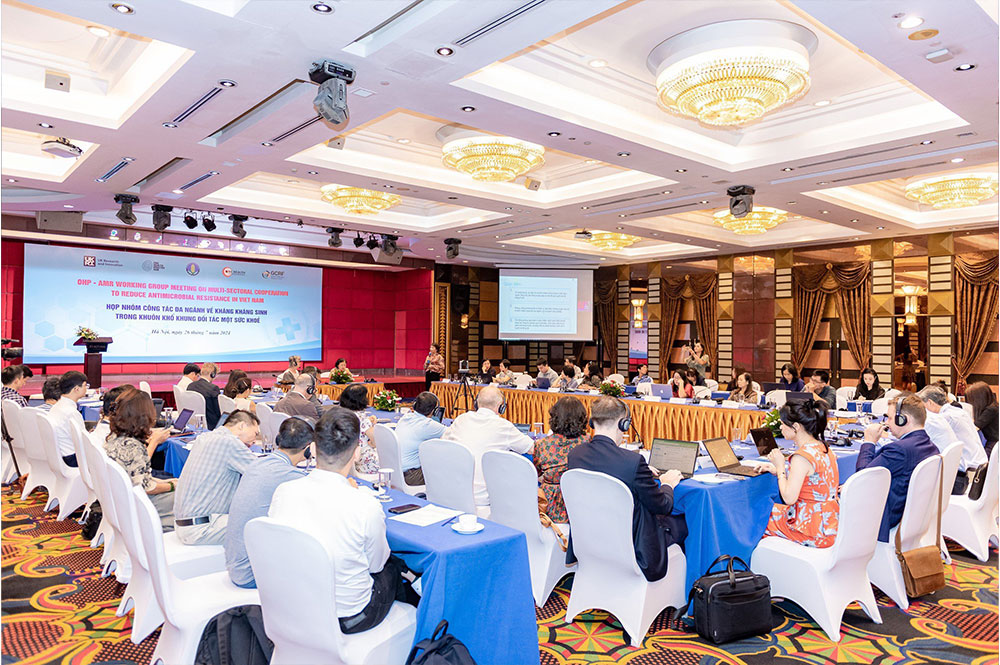
The strategy clearly states: “Preventing antimicrobial resistance is an urgent, regular, and long-term task, which is the core responsibility of the health and agriculture sectors. It involves proactively preventing infectious diseases, controlling infections, enhancing the capacity for prevention, detection, diagnosis, treatment, and surveillance of antimicrobial resistance, and the use and consumption of antimicrobial drugs in humans and animals.” From this, the strategy sets forth specific objectives, including Raising awareness among local government authorities, healthcare and veterinary workers, and the public about the prevention and control of antimicrobial resistance; Strengthening the antimicrobial resistance surveillance system to provide timely warnings about the emergence, spread, levels, and trends of antimicrobial resistance in microorganisms; Reducing the spread of microorganisms and infectious diseases; Ensuring the rational, safe, and responsible use of antimicrobial drugs in humans and animals.
To effectively implement this strategy, the Ministry of Agriculture and Rural Development continues to mobilize all resources to carry out the “National Action Plan on Antimicrobial Resistance in Agriculture for the period 2021-2025,” approved by Decision No. 3609/QĐ-BNN-TY on August 23, 2021.
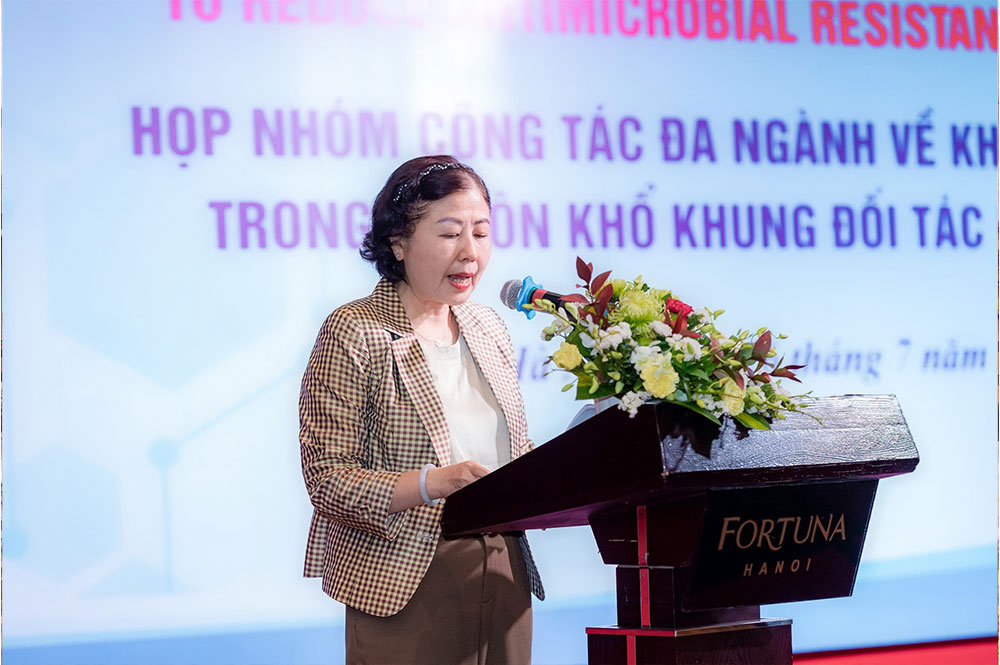
Ms. Robyn Alder, representing Chatham House, United Kingdom, emphasized that the government manages antimicrobial resistance as a health risk. Making the best use of available resources, coordinating multisectoral policies on antibiotic management, and acting together is key to achieving comprehensive results through multisectoral collaboration. This is also a priority area supported by the UKRI GCRF One Health Poultry Hub to assist Vietnam National University of Agriculture in conducting a review of antimicrobial resistance policies in Vietnam.
The meeting emphasized the importance of strengthening multisectoral commitment and multilateral cooperation in the management, surveillance, and prevention of AMR, which is essential for any country, especially Vietnam since the World Health Organization ranks Vietnam among the countries with the highest rates of antimicrobial resistance in the world. Although Vietnam is recognized as having a comprehensive regulatory system on AMR and an early national action plan on AMR compared to other countries, the implementation of AMR measures is an urgent task, thus requiring mobilizing investing resources to enforce AMR regulations. Besides, international development partners reaffirmed their shared responsibility with the Vietnamese government in preventing AMR and continue to commit support and resources.
In this meeting, state management agencies on AMR provided updates on the progress of antimicrobial resistance prevention in veterinary medicine, healthcare, and the environment. International and domestic partners shared ongoing and completed research results, proposed opportunities to integrate AMR policies into multilateral cooperation, and suggested solutions to promote the role of public-private partnerships in combating and preventing the misuse or overuse of antimicrobials.
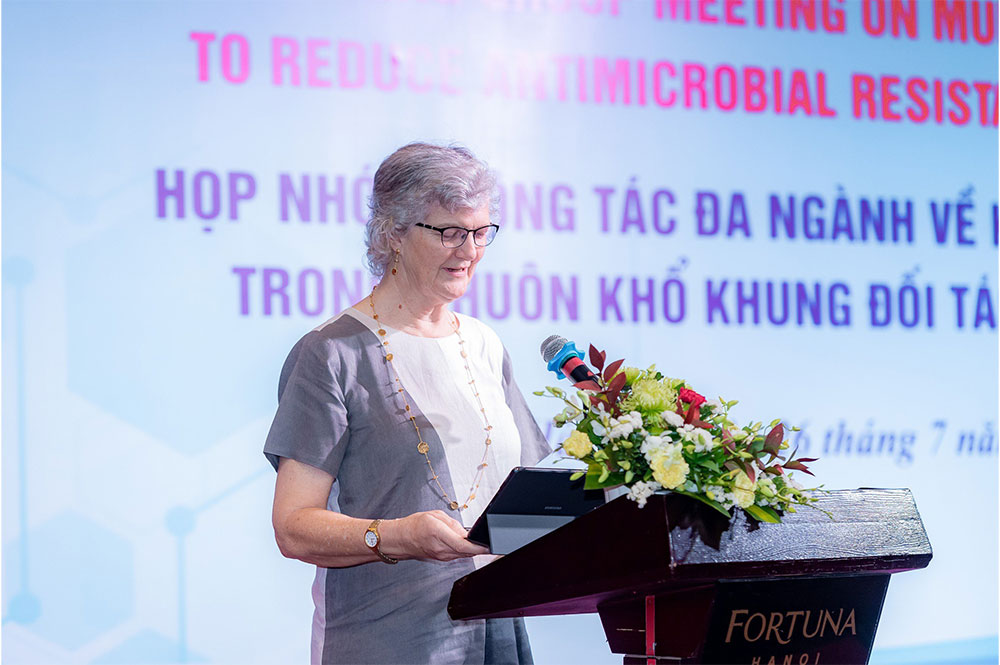
Facing the current situation of antimicrobial resistance in Vietnam, there are still many shortcomings in the regulations on the supply of antibiotics in healthcare and veterinary medicine, the provision of medical and veterinary antibiotics, and the antibiotic use monitoring system. This requires various levels of departments and sectors in Vietnam to continue strengthening their coordination in the efforts to prevent antimicrobial resistance. The coordination must be based on a One Health approach, as humans, animals, plants, and the environment are interconnected at global, regional, national, and sectoral levels.
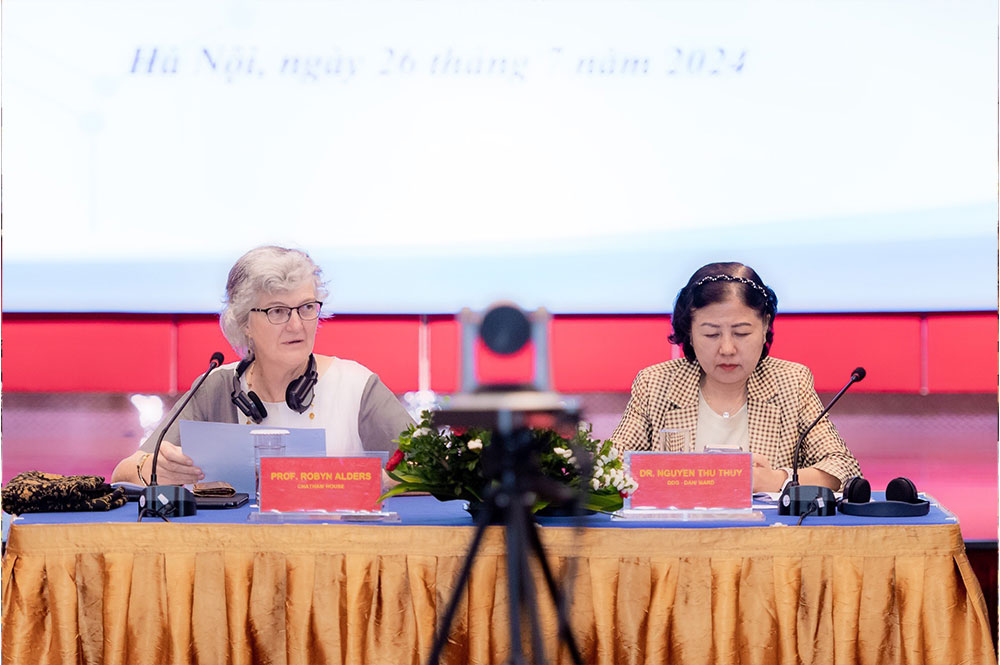
The Ministry of Agriculture and Rural Development, in collaboration with the two co-chairing ministries of the One Health Partnership Framework, is committed to fulfilling its role in coordinating and creating mechanisms and forums for sharing and disseminating research results, lessons learned, and practical experiences from international and national AMR activities and programs. Furthermore, the ministry will serve as a bridge, connecting domestic stakeholders and international development partners present today to listen to the actual needs of Vietnamese government agencies, providing technical support or allocating resources suitable to Vietnam’s situation and conditions.